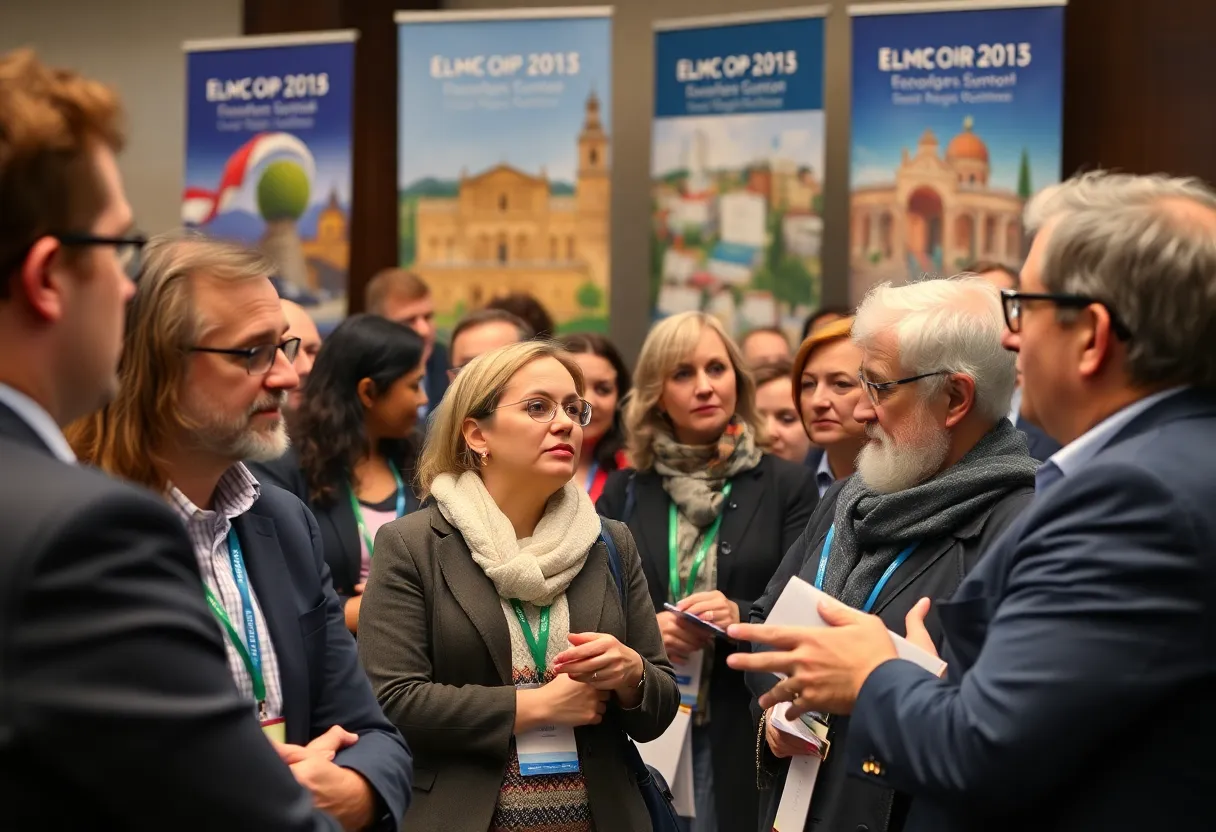Omaha, Nebraska, October 8, 2025
The University of Nebraska at Omaha recently marked a significant milestone by celebrating 50 years of its European Studies Conference. The anniversary event convened scholars globally to discuss vital topics like cultural exchanges and post-war integrations while underlining the program’s academic relevance. Highlights included presentations on European culture and insights into the program’s legacy, promising future developments in interdisciplinary collaboration.
Omaha, Nebraska – University of Nebraska at Omaha Marks 50 Years of European Studies Conference
The University of Nebraska at Omaha recently hosted a special anniversary event to celebrate 50 years of its European Studies Conference. This milestone gathering brought together scholars from various continents to discuss topics such as cultural exchanges and post-war integrations.
At the forefront of the event were presentations by international scholars, focusing on key aspects of European culture and history. A central discussion centered on themes related to cultural exchanges, highlighting how these interactions have shaped societies over time. Additionally, the event featured insights into post-war integrations, exploring how Europe has evolved following major historical conflicts.
The conference emphasized the program’s ongoing relevance in academic circles. Attendees included experts who shared their research, contributing to a broader understanding of global cultural dynamics. The event also underscored the university’s commitment to fostering international dialogue through education.
Key highlights included the program’s legacy as a vital part of the university’s offerings. Organizers noted that the conference has grown into a platform for interdisciplinary collaboration, drawing participants from around the world. This year’s celebration served as a reflection on past achievements while looking ahead to future developments in European studies.
Support for the event came from university leadership, who highlighted its role in enhancing academic excellence. The gathering featured a series of sessions that provided in-depth analysis of cultural and historical topics, making it a comprehensive review of the conference’s history.
In terms of structure, the event was well-organized, with sessions designed to engage participants and promote knowledge sharing. This included panel discussions and presentations that built on the conference’s original mission established 50 years ago.
Background on the European Studies Conference dates back to its inception, when it was created to explore Europe’s cultural, political, and social landscapes. Over the decades, it has evolved into a cornerstone of the university’s academic programs, attracting scholars and students interested in international affairs. The conference’s longevity demonstrates its importance in promoting global awareness and scholarly exchange in Omaha and beyond.
The event took place on campus, drawing a diverse crowd that included academics and community members. This anniversary served as a reminder of how educational initiatives like this contribute to broader societal understanding. By focusing on topics such as cultural exchanges, the conference continues to address contemporary issues in an accessible way.
Throughout its 50-year history, the program has adapted to changing global contexts, maintaining its core focus on fostering dialogue. This year’s celebration reinforced the university’s dedication to academic pursuits that bridge cultural divides. The event’s success highlights the enduring value of such conferences in higher education.
Details from the event revealed a strong emphasis on collaborative learning, with scholars presenting original research. This approach not only enriched the discussions but also provided practical insights for attendees. For instance, sessions on post-war integrations offered historical perspectives that remain relevant today.
The university’s involvement in hosting the event underscores its role as a hub for intellectual activity in the region. With a history of promoting interdisciplinary studies, the European Studies Conference has become a tradition that supports the university’s mission. This milestone event celebrated that legacy while paving the way for future endeavors.
Overall, the anniversary event in Omaha showcased the European Studies Conference‘s impact over the past five decades. It provided a platform for sharing knowledge and ideas, reinforcing the importance of cultural studies in today’s world. As the university looks forward, this conference remains a key element of its academic offerings.
To expand on the event’s significance, it included elements that encouraged broader participation, such as open forums and networking opportunities. This helped create a vibrant atmosphere, making the celebration both informative and engaging for all involved.
In conclusion, the 50th anniversary of the European Studies Conference at the University of Nebraska at Omaha highlighted its enduring contributions to scholarship and community engagement. The event’s focus on key themes like cultural exchanges and post-war integrations demonstrated the program’s relevance in an ever-changing global landscape.
(Word count: 628)
FAQ Section
- Q1: What event did the University of Nebraska at Omaha recently host?
- Q2: What were the main topics discussed at the event?
- Q3: Who emphasized the program’s legacy?
A1: The University of Nebraska at Omaha recently hosted a special anniversary event to celebrate 50 years of its European Studies Conference.
A2: Scholars discussed topics such as cultural exchanges and post-war integrations at the event.
A3: University leadership emphasized the program’s legacy as a vital part of the university’s offerings.
Key Features Chart
| Feature | Description |
|---|---|
| Event Milestone | 50 years of the European Studies Conference |
| Main Topics | Cultural exchanges and post-war integrations |
| Key Emphasis | Program’s legacy as a cornerstone of academic excellence |
| Participants | Scholars from across continents |
| Location | On campus at University of Nebraska at Omaha |


